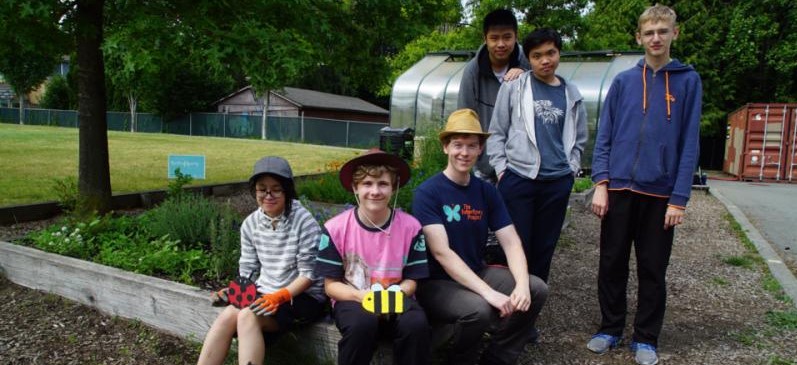
Teacher Champion - Neill McCallum
In this issue of our BCAITC Teacher Champion series, we profile BC teacher Neill McCallum. Discover his passion for educating students about BC agriculture, food, and the environment. Follow ‘Nature with Neill’ on Instagram or Twitter at @naturewithneill.
Q: What school do you teach at? A: Richmond Virtual School.
Q: What grade(s) do you teach? A: I currently teach grades 5, 6, and 7, but I am usually a high school teacher.
Q: How and when did you first learn about BCAITC? A: I learned about BCAITC a few years ago when I was researching environmental education ideas related to gardening.
Q: How long have you been teaching students about BC agriculture and food? A: I was previously a sponsor for a school green team which gave me a great opportunity to help students practice maintaining a vegetable garden on school grounds. Our club was able to collaborate with the school's food studies teachers to provide a resource for local produce and many students developed green thumbs!
Q: What are the most important things that you want your students to learn about BC agriculture and food? A: The most important aspects of food education would be helping my students see outside the grocery store and realize where their food is coming from, how it is produced, and what impacts different types of food choices have on the environment.
Q: BCAITC has over 500 free downloadable resources including lesson plans, activities, videos, recipes, and more! What is your favourite BCAITC resource and why? A: I enjoy the diversity of handouts available from BCAITC, it is difficult to choose just one!
Q: What is your favourite BCAITC program and why? A: My favourite program would be the BC School Fruit & Vegetable Nutritional Program because it provides a healthy option for many students who do not normally have access to healthy fruits and vegetables at home. It also gives me the opportunity to discuss the food item, how it is produced, and why it is important to eat fresh, local produce.
 Q: What is an agriculture or food-based project you have recently implemented in your classroom? A: Aside from growing herbs and vegetables in our school outdoor garden, I have also been giving students the experience of growing food indoors with the use of aeroponic technology (see photo at right). Aeroponics is different from hydroponics or aquaponics because the roots of the plants are not constantly sitting in nutrient water, instead they are exposed to the air and intermittently bathed with nutrient water. It requires less water than traditional gardening and allows us to grow leafy greens any time of the year.
Q: What is an agriculture or food-based project you have recently implemented in your classroom? A: Aside from growing herbs and vegetables in our school outdoor garden, I have also been giving students the experience of growing food indoors with the use of aeroponic technology (see photo at right). Aeroponics is different from hydroponics or aquaponics because the roots of the plants are not constantly sitting in nutrient water, instead they are exposed to the air and intermittently bathed with nutrient water. It requires less water than traditional gardening and allows us to grow leafy greens any time of the year.
Q: Do you have any advice for other educators on how to integrate agriculture and food education into their curriculum? A: Experiment and develop your confidence in the topic by doing a bit of research, starting a small garden, or reaching out to other teachers in your school or district and work towards curricular integration as a team.

About the Teacher Champion Series: This monthly BCAITC series features BC teachers who are passionate about providing agriculture and food education to K-12 students. For more information, contact our Communications Coordinator, meghan@aitc.ca.
